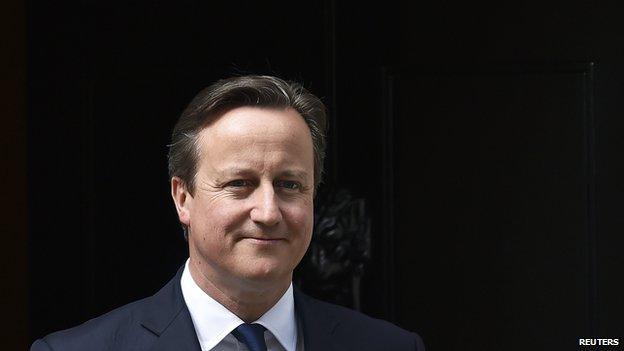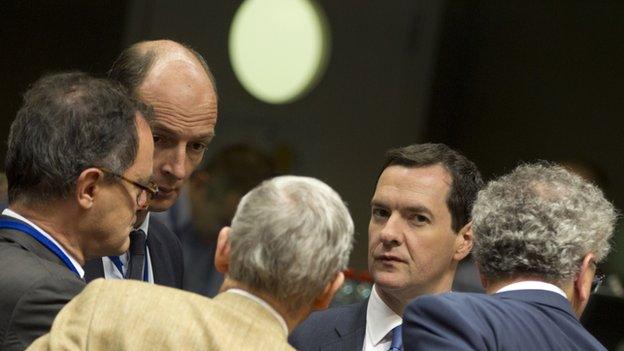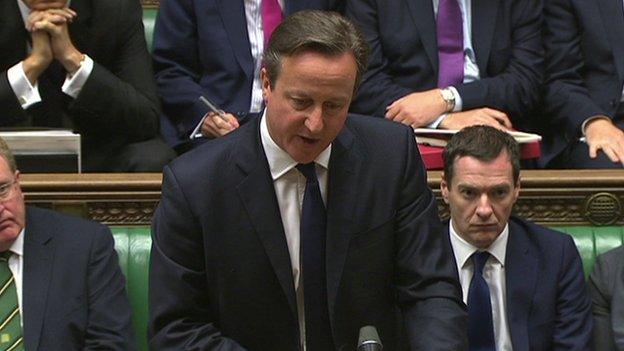The EU row Cameron doesn't want
- Published

The last thing David Cameron needs now is a row with the European Union.
The prime minister has just ended an exhausting, girth-enhancing charm offensive around European capitals, selling his proposals to reform Britain's relationship with the EU.
His civil servants in Brussels have begun negotiating the details with European Council and commission officials.
Hard work
George Osborne is preparing to pick up the diplomatic baton and start discussing the plans with fellow finance ministers. Progress of a sort is being made.
So what neither the chancellor nor the prime minister need is a dispute over bailing out Greece that would undo all this hard work.
The European Commission has formally proposed using an EU fund - known as the European Financial Stability Mechanism - to help tide Greece over in coming weeks.

Chancellor George Osborne objected to the use of EU funds ahead of a meeting with EU finance ministers
In other words, £5bn of EU cash would be used to prop up a eurozone country. And as it is EU cash, Britain would be involved, potentially liable for about £730m if Greece were not to pay the money back.
The UK government, however, has made it very clear that it does not think British taxpayers should bail out Greece.
They have pointed out that EU heads of government agreed unambiguously in 2010 that this EU fund should not be used to bail out eurozone countries.
And yet, and yet. Where once David Cameron might have used this as an excuse to have a go at the EU, to show why it needs to be reformed, and why those reforms need to be legally binding, the prime minister is instead playing this one softly.
In the Commons, Mr Cameron made clear that Britain would not bail out eurozone countries but was at pains to offer Greece humanitarian aid if it fell out of the euro.
Diplomats' discussions
His official spokesman told journalists: "We are willing to engage with partners to look at what the solution could be."
Instead of aggressively looking for allies to achieve a qualified majority and block the use of any EU funds in a Greek bailout, British diplomats are holding talks with commission officials to see if there is a way of protecting British taxpayers by ringfencing any potential UK liability while still using the EFSM to help Greece.
Treasury officials say progress is being made on this and are hopeful of establishing a ringfence which would protect British cash permanently from any theoretical risk, in a way that they say would enhance the no-bailout agreement in 2010.
In other words, the UK is doing everything it can to avoid a dog fight with Brussels.
Ministers don't want to upset the reform negotiations. They don't want to fuel any further anti-EU sentiment within Britain.
And they don't want people to start thinking that political agreements between EU countries are worthless when they might have to rely on such agreements to win an in-out referendum.
- Published15 July 2015
